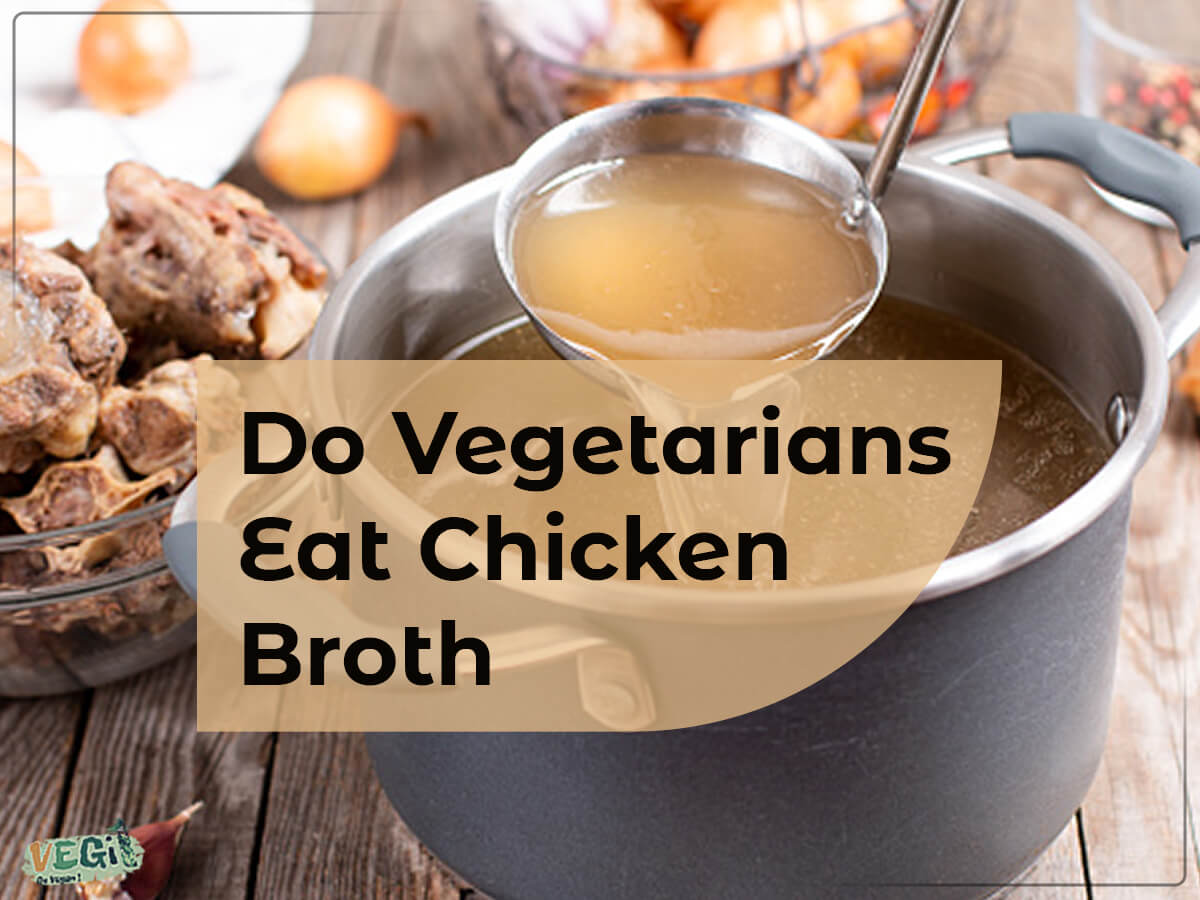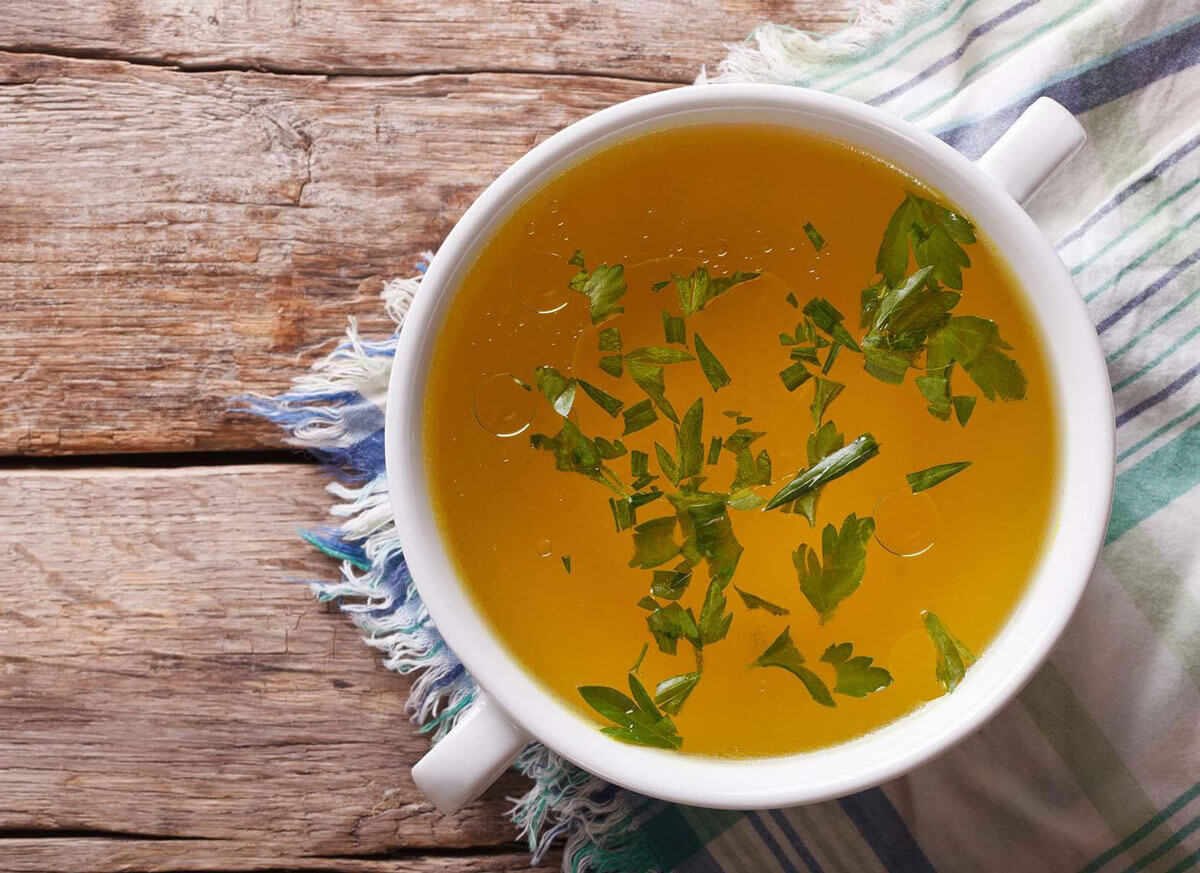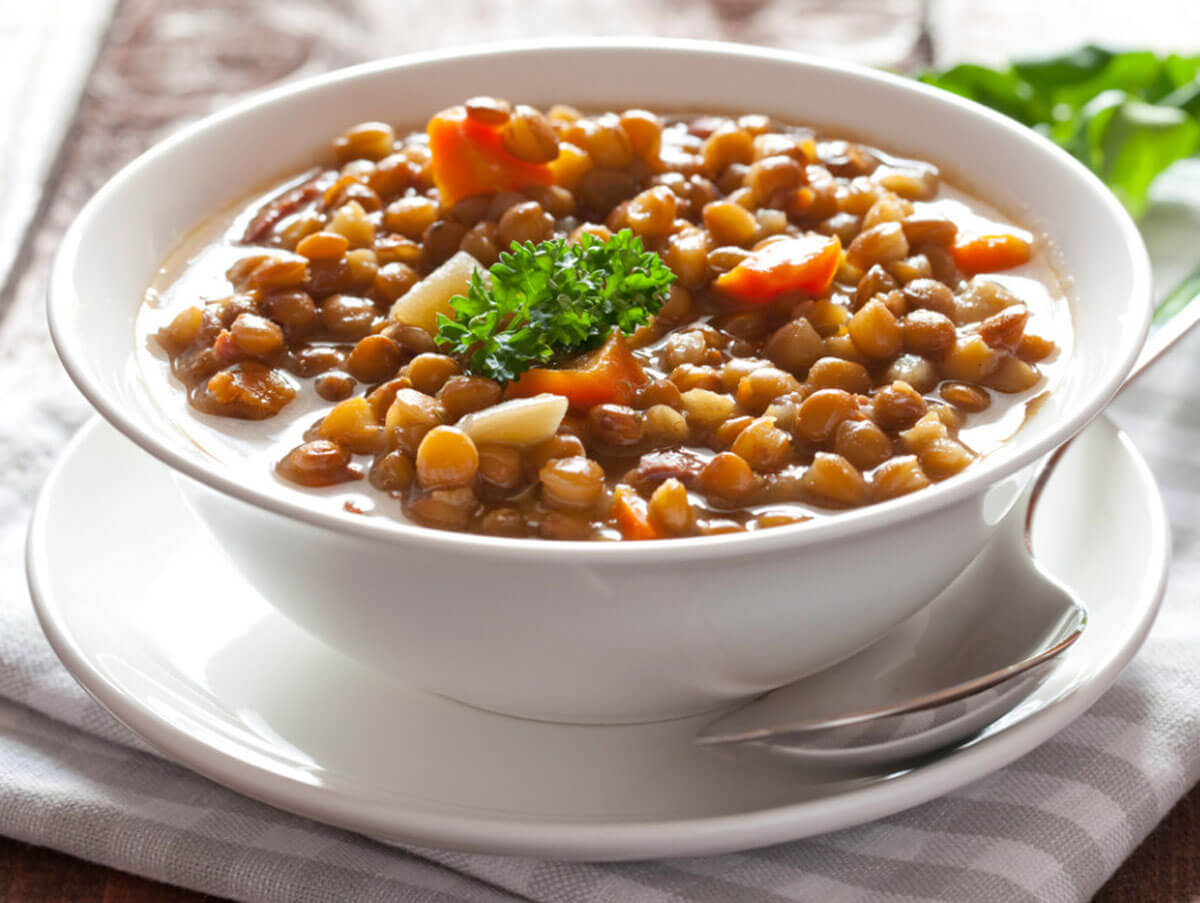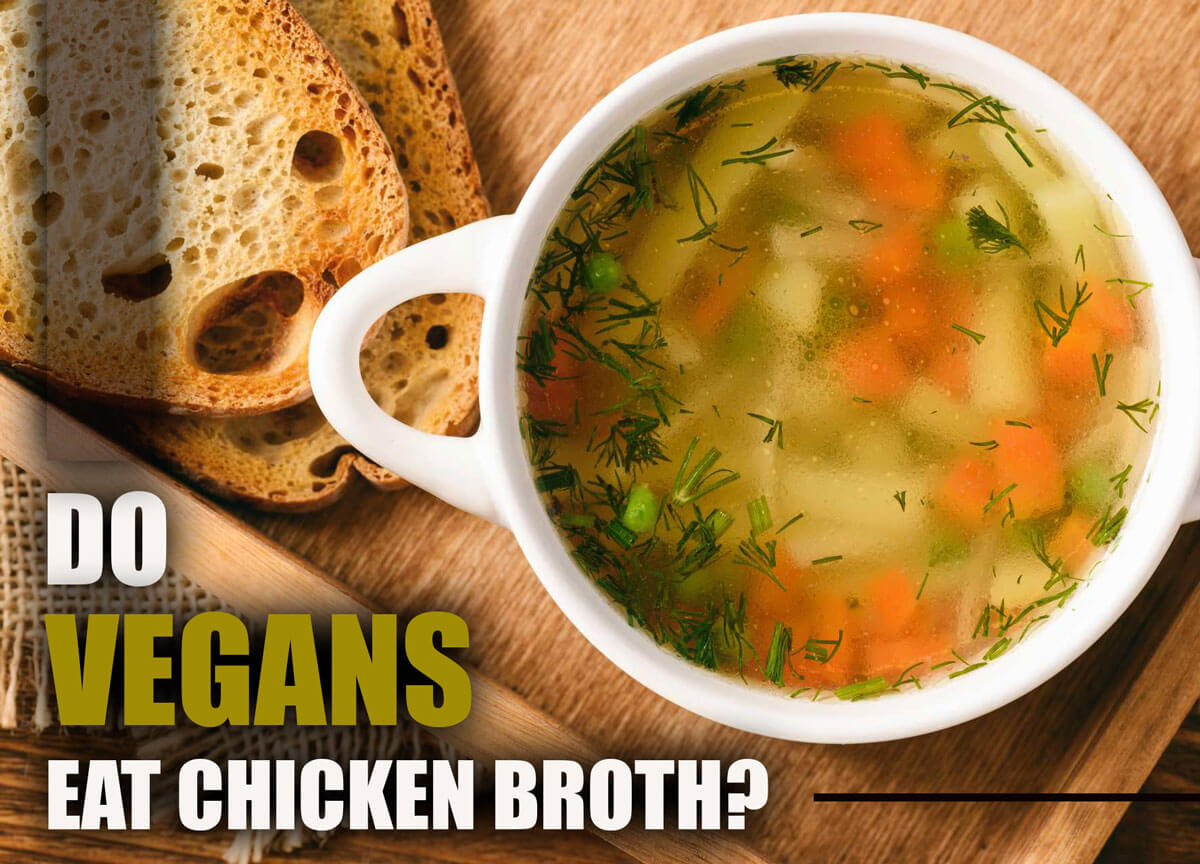Do Vegetarians Eat Chicken Broth? The Truth About Vegans and Chicken Broth

Have you ever wondered if vegans eat chicken broth? Well, I’ve been on a quest to find the answer, and I can’t wait to share my discoveries with you! In this article, we’ll explore the world of chicken broth, its relevance to the vegan lifestyle, and the intriguing question of whether semi-vegans can indulge in it. But fear not, my plant-based pals, because we’ll also uncover some fantastic vegan-friendly alternatives that will elevate your culinary game! Plus, I’ll spill the beans on how you can easily make your very own vegan-friendly “chicken” broth at home. So, buckle up and join me on this exciting journey into the realm of veganism and chicken broth. Let’s dive in together and explore this fascinating topic!
In this article you will read:
What is chicken broth?
All right then, let’s talk chicken broth! So, what exactly is chicken broth? It’s a liquid made by simmering chicken bones and other parts in water, along with various vegetables and herbs.
Now, you may wonder why chicken broth is even relevant to vegans if it’s made from chicken.
After all, aren’t vegans supposed to avoid all animal products? Well, the answer is a bit complicated.
While some vegans avoid animal products, others may consume eggs, dairy, or fish. This means there’s no one-size-fits-all answer to whether vegans can eat chicken broth.
Chicken broth is definitely off the menu for vegans who avoid all animal products.
This is because chicken broth is made from animal bones, which goes against the principles of veganism.
So, there you have it – a brief rundown of what chicken broth is and why it’s relevant to the vegan diet.
Discover why vegans choose to steer clear of meat broth, the ethical and environmental reasons behind their decision, and explore tasty alternatives : Do Vegans Eat Meat Broth?
Arguments Against Consuming Chicken Broth
As a vegan, the thought of consuming chicken broth makes me cringe. But let’s take a closer look at the reasons why vegetarians like myself choose to avoid it.
- Firstly, ethical considerations are a significant factor. Vegetarianism is rooted in the belief that all living beings deserve respect and should not be exploited for our consumption. Consuming animal products, like chicken broth, goes against this principle and contradicts the vegetarian philosophy.
- Secondly, Another crucial aspect to consider is animal welfare. The conditions in which animals are raised and slaughtered in the meat industry of chicken broth raise significant concerns. Chickens raised for broth are typically kept in cramped and unsanitary conditions, which can lead to stress and disease. They endure a life filled with suffering, which is something vegetarians actively oppose.
- Lastly, the environmental impact of the meat industry cannot be ignored. Animal agriculture is a leading contributor to deforestation, greenhouse gas emissions, and water pollution. By choosing to abstain from chicken broth and other animal products, vegetarians contribute to mitigating these environmental consequences. It’s our way of positively impacting the planet and advocating for a more sustainable future.
Understanding these ethical, animal welfare, and environmental considerations helps shape the vegetarian perspective on consuming chicken broth. As vegans, we aim to align our choices with our values of compassion, respect for animals, and sustainability. By excluding chicken broth from our diets, we consciously decide to support a more compassionate and environmentally friendly lifestyle.
In the next sections, we will explore alternative options to chicken broth that align with the principles of vegetarianism, providing delicious and nutritious alternatives that can be easily incorporated into our diets.
Semi-Vegans can eat chicken broth?
Ah, the age-old question: can semi-vegans eat chicken broth? It all depends on the individual’s beliefs and dietary restrictions.
Semi-veganism, also known as flexitarianism, is a diet that includes occasional consumption of meat, poultry, and fish but is primarily plant-based.
For some flexitarians, chicken broth may be acceptable in their diet, as it’s a lower-impact form of animal consumption than eating chicken meat.
However, others may consider even the consumption of broth made from animal products to violate their dietary principles.
Discover the key differences between vegan and pescatarian diets, and choose the path that aligns with your values and dietary preferences. Difference Between Vegan and Pescatarian
It’s worth noting that while chicken broth may be acceptable for some semi-vegans, it’s important to be mindful of the sourcing of the chicken used to make the broth.
Choosing ethically and sustainably sourced chicken is an important consideration for those prioritizing animal welfare and sustainable agriculture practices.
For those who don’t consume chicken broth, there are plenty of vegan alternatives to chicken broth that can be easily incorporated into a semi-vegan diet.
I will tell you some of the best alternatives in the next section!

What are the best chicken broth alternatives?
Plenty of delicious and nutritious options exist whether you’re a vegan or just looking to switch up your cooking game.
One great alternative to chicken broth is bone broth made from beef or pork bones.
While this may not be suitable for vegans, bone broth is known for its high collagen content and can help support healthy skin, hair, and nails.
For vegans, mushroom broth is an excellent option with antioxidants and vitamin D.
It’s easy to make at home using mushrooms, such as shiitake, oyster, or portobello.
Another great vegan option is vegetable broth, which can be made using various vegetables and herbs.
Carrots, celery, onions, and garlic are great additions that can add depth and flavor to the broth.
For those looking for a kick, spicy vegetable broth is another great option that can easily customize to your taste preferences.
Add some chili peppers or cayenne pepper for an extra kick of heat.

How to make our vegan-friendly chicken broth?
Do you want to make your vegan-friendly chicken broth? Great idea! Homemade broth is delicious, nutritious, and a fantastic way to reduce food waste using leftover vegetables.
To make vegan-friendly chicken broth, start by gathering your ingredients. You’ll need a variety of vegetables, such as carrots, celery, onions, and garlic, as well as herbs and spices, such as bay leaves, thyme, and peppercorns.
We’ll use nutritional yeast for that chicken flavor, which has a nutty, cheesy flavor and is a great protein and vitamin B12 source.
If you want to learn how to make it, follow the below steps:
+ 6 easy steps to make vegan-friendly chicken broth
-
Step 1
Prep your veggies by washing and chopping them into large pieces. You can also use vegetable scraps like onion skins, carrot tops, and celery leaves.
-
Step 2
Heat a large pot with some oil, and once hot, add your vegetables and cook them for a few minutes until they soften.
-
Step 3
Add enough water to cover the vegetables, and then add in your herbs and spices. Bring the mixture to a boil.
-
Step 4
Once the mixture has boiled, reduce the heat and let it simmer for several hours. The longer you let it simmer, the more flavorful and nutritious your broth will be.
-
Step 5
Strain the mixture through a fine mesh strainer or cheesecloth, and discard the solids.
-
Step 6
Add in some nutritional yeast to give your broth that chicken flavor. Start with a small amount and taste until you achieve your desired flavor.
And that’s it! You’ve just made your vegan-friendly chicken broth.
Use it in your favorite recipes, such as soups, stews, and risottos, or sip it as a nourishing and comforting drink.
Discover why chicken isn’t on the vegan menu, from ethical concerns to health benefits. Plus, explore tasty plant-based alternatives to try today. Can vegans eat chicken? Reasons + Alternatives
How to identify & avoid animal products in packaging?
First off, familiarize yourself with common animal-derived ingredients.
These include gelatin, which comes from animal bones and connective tissues, and rennet, which is derived from the stomach lining of cows and is often used in cheese production.
Other animal-derived ingredients include honey, milk, and eggs.
When shopping for packaged foods, always read the ingredient list carefully.
Look out for keywords such as “meat,” “dairy,” and “animal.” Also, some products may contain hidden animal-derived ingredients, such as natural flavors or colors.
If you’re unsure, reach out to the manufacturer for clarification.
Another tip is to look for products specifically labeled vegan or vegan.
Many companies now offer plant-based alternatives to traditional animal products, such as vegan cheese and plant-based meats.
If you’re dining out, feel free to ask questions about the ingredients in the dishes. Most restaurants are happy to accommodate dietary restrictions and can offer vegan options.

To conclude
I hope this article has shed some light on the question of whether vegans can eat chicken broth. As a vegan myself, I firmly believe in making informed decisions about our dietary choices, aligning them with our values and beliefs.
When it comes to chicken broth, ethical considerations, animal welfare concerns, and the environmental impact of the meat industry are all valid reasons for vegetarians and vegans to avoid it. We can actively support a more compassionate and sustainable lifestyle by abstaining from chicken broth.
But fear not! For vegans, there are plenty of fantastic alternatives to chicken broth that are equally nutritious and delicious. From bone broth to mushroom and vegetable broths, there are options for every taste and preference.
I would love to hear your thoughts and experiences on this topic. Have you tried any chicken broth alternatives? How did they turn out? Share your insights, recipes, and tips in the comments below.
Let’s create a vibrant community where we can learn from each other and inspire more people to embrace the beauty of vegetarianism.
Remember, every decision we make, no matter how small, has the power to make a difference. So let’s continue to make conscious choices and pave the way for a more compassionate and sustainable world. Cheers to a vibrant and delicious plant-based journey!










